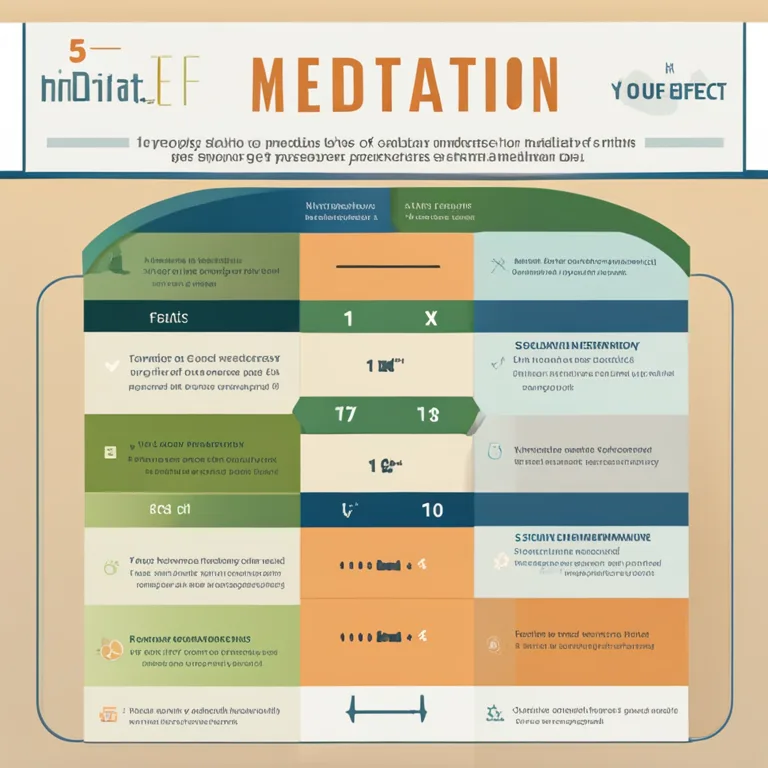
Boost Your Memory with Meditation Techniques
Learn how meditation can enhance your recall and cognitive skills through effective, mindful practices.
article by Hina Kurosawa
Introduction to Memory and Meditation
Meditation has long been acclaimed for its calming effects on the mind, but recent studies point to profound impacts on cognitive functions, particularly memory. As we embrace 2024, the blend of neuroscience and mindfulness has unveiled fresh insights into memory improvement. Research indicates that consistent meditation practice can lead to structural changes in the brain, fostering better memory retention and recall. Integrating meditation into your daily routine can be a powerful tool for maintaining and improving this critical cognitive ability.

The Science Behind Meditation and Memory
Neuroplasticity—the brain's ability to reorganize itself by forming new neural connections—is at the core of meditation's impact. Techniques like focused attention and mindfulness meditation have been shown to strengthen areas of the brain associated with memory, such as the hippocampus and frontal lobes. A 2024 study highlights that individuals who meditate regularly exhibit more gyrification—folding of the brain's cerebral cortex—which has been linked to faster processing power and improved memory functions.

Effective Meditation Practices for Memory
Among a variety of meditation techniques, some have shown particular promise for memory enhancement. Kirtan Kriya, a form of Kundalini Yoga, combines a mantra with repetitive finger movements to engage cognitive pathways. Similarly, mindfulness meditation encourages practitioners to fully deliberate on the present moment, honing attention and concentration. Both practices have been associated with improved cognitive functioning including enhanced memory. Participants are also encouraged to incorporate visualization techniques, as conjuring vivid mental images aids in memory retention and recall.

Building a Meditation Routine
To reap the benefits of meditation for memory, consistency is key. Establishing a daily meditation habit, even for as little as 10 minutes a day, can lead to significant improvements. It's also worth noting that meditation is cumulative; the longer you practice, the more robust your cognitive gains can be. Early risers may prefer to meditate during the morning to set a focused tone for the day, whereas others might find an evening session beneficial to decompress and consolidate the day's memories.

Personalize Your Meditation Journey
Each individual's experience with meditation is unique. As such, customization is crucial. Some may find guided meditations, which often use soothing narratives or instructions, to be a helpful starting point. Others might prioritize silent meditation in a serene, distraction-free environment to deepen their practice. In 2024, technology offers personalized meditation apps that can adjust to your needs, progress, and preferences, aiding in the development of a tailored meditation regimen that best supports memory improvement.
Challenges and Tips for Beginners
Embarking on a meditation journey can come with its set of challenges, especially for beginners. Common hurdles include restlessness, impatience, and doubt about the effectiveness of the practice. It's important to be patient and gentle with oneself, understanding that proficiency in meditation—and its benefits on memory—accrues over time. Begin with short sessions and gradually increase the length as you become more comfortable. Using relaxing background music or a comfortable meditation cushion can enhance your practice and help sustain focus throughout your sessions.
Published: 1/8/2024
Modified: 1/8/2024
More predictions
Come back here soon to learn more about yourself and your future


Meditation Techniques For OCD
Mindful practices to help manage Obsessive-Compulsive Disorder symptoms effectively through meditation.


Finger Meditation Techniques
Discover the power of finger meditation to harmonize your body and mind, enhancing wellness and inner peace.


Meditation Techniques: A Handbook
Discover the breadth of meditation methods to enhance your wellness journey.